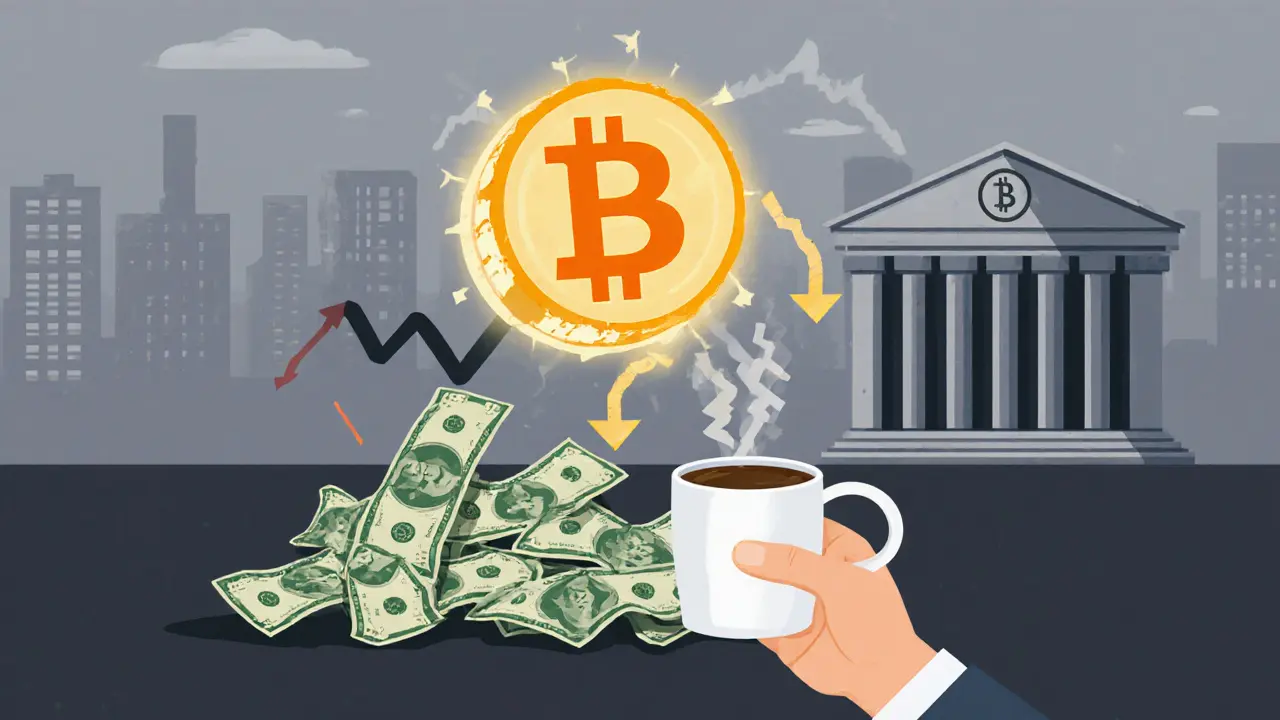Cryptocurrency Disadvantages: Risks, Scams, and Real-World Downsides
When people talk about cryptocurrency, digital money that runs on decentralized networks without banks. Also known as crypto, it lets you send value across borders in minutes. But behind the hype, there are serious downsides most guides won’t tell you.
One of the biggest problems is crypto scams, fake projects designed to steal your money under the guise of free tokens or high returns. Look at HyperGraph (HGT) or MM Finance—neither had real tokens or liquidity, yet people lost cash chasing phantom airdrops. These aren’t rare. In Southeast Asia, where crypto adoption is rising fast, scammers target new users with fake apps, cloned websites, and promises of easy money. You don’t need to be a tech expert to get tricked—just curious.
Then there’s crypto volatility, wild price swings that can wipe out savings overnight. Schrödinger (SGR) dropped 90% in months. Carlo (CARLO) and Alterverse (AVC) are memecoins with no real use—just hype. If you bought in hoping for stability, you’re in for a shock. Unlike stocks or real estate, crypto has no earnings, no dividends, no physical value to anchor prices. What it has is speculation, social media trends, and influencers pushing pumps.
And let’s not forget crypto regulation, the patchwork of laws that can turn your investment into a legal gray zone overnight. Nigeria banned crypto exchanges but couldn’t stop P2P trading. Iran’s businesses still accept crypto despite unclear rules. The UAE has zero tax on gains—but what happens if that changes? Regulations shift fast, and when they do, exchanges shut down, wallets freeze, and access vanishes. You think you own your crypto? Until you can withdraw it, you don’t.
Even the tech behind it has flaws. Decentralized finance (DeFi) sounds empowering, but flash loans and smart contracts? They’re powerful tools—and easy to exploit. Platforms like FEG Exchange and TomoDEX offer rewards, but low liquidity means you can’t sell when you need to. Some, like İkipara, lack licenses and security. Others, like MM Finance, have zero token supply and are outright scams. The system isn’t broken—it’s messy. And the people who suffer most are those who don’t know what they’re signing up for.
Yes, crypto can be revolutionary. But it’s not magic. It’s code, speculation, and human greed wrapped in blockchain buzzwords. The posts below don’t sugarcoat it. You’ll find real breakdowns of fake airdrops, scam exchanges, risky tokens, and regulatory traps—all based on what’s actually happening in Southeast Asia and beyond. No fluff. No hype. Just what you need to know before you click ‘confirm’.
